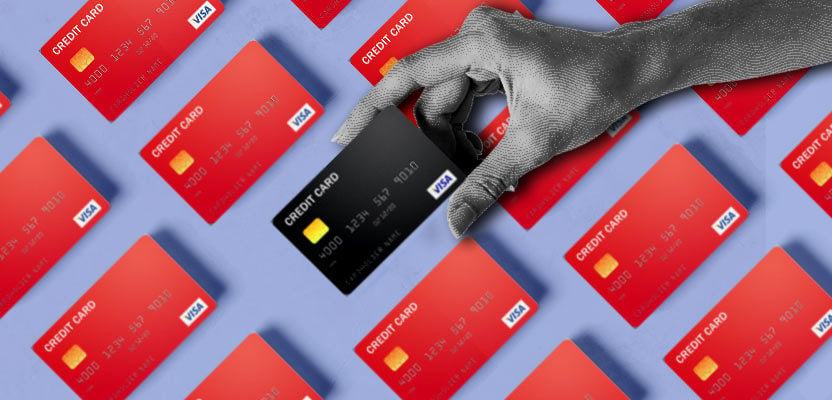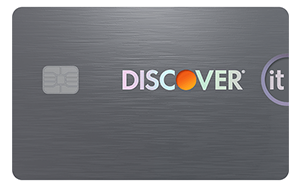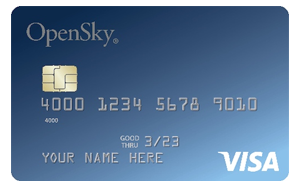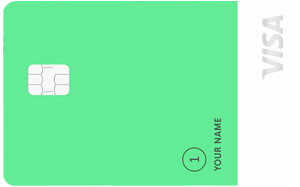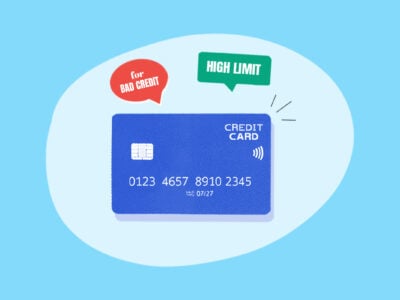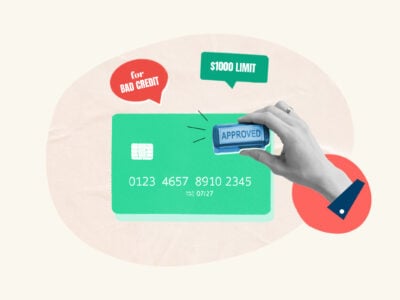Credit Cards for Bad Credit
| Credit Card | Best For | Credit Score | Annual Fee | Welcome Bonus | |
|---|---|---|---|---|---|
| Bad Credit Overall | 300–669 | $0 | Cashback Match | ||
| Secured | 300–669 | $0 | |||
| Unsecured (No Deposit) | 300–669 | $0 | |||
| No Interest | 300–669 | $0 | |||
| No Credit Check | 300–669 | $35 | |||
| No Fees | 300–669 | $0 | |||
| High Credit Limit | 300–669 | $39 ($0 for the first year if you set up autopay) | |||
| Rewards | 300–669 | $0 | |||
| Building Credit | 580–739 | $0 | |||
Table of Contents
When you have a bad credit score or a damaged credit history, qualifying for a credit card can be difficult. Even worse, most of the cards available to people with bad credit charge high fees and interest rates, and don’t offer many rewards or benefits.
Luckily, there are some hidden gems out there for borrowers with bad credit, and we’ve found the best of the best. Learn about how to get a credit card when you have poor credit, and browse our top 9 picks for the best credit cards for bad credit.
9 best credit cards for bad credit
Here are the 9 best credit cards you can get with bad credit.
Overall best credit card for bad credit
Discover it® Secured Credit Card
Rating Breakdown
Fees
4.9No annual fee and no foreign transaction fees score this card a high rating in the fees department.
APR
2.7Carrying a balance could get costly on this card, given the high purchase APR.
Rewards
4.4Considering it’s a secured card, the Discover it® Secured offers impressive rewards and even a cashback welcome bonus.
Credit Reporting
5.0Discover reports to the major credit bureaus, which can help you build your credit.
Security Deposit
4.0The minimum and maximum security deposit allow a good range of flexibility for you to determine your credit limit.
Other
We adjusted for factors like free credit scores and a fully refundable security deposit.
|
Annual
Fee
$0 |
Credit
Score
300–669 |
|
Deposit
$200–$2,500 |
Purchase
APR
25.99% (variable) |
Rewards
-
Welcome Bonus
Cashback Match earns you a dollar-for-dollar match on your first-year rewards
-
Gas & Restaurants
2% cash back up to $1,000 in combined spending each quarter
-
Everything Else
1% cash back on all eligible purchases
Why It's Great
The Discover it® Secured is easily the best credit card for bad credit. It doesn’t charge an annual fee, offers cashback rewards, and gives borrowers the option to graduate to an unsecured card.
The Discover it® Secured is a secured credit card, meaning it requires a credit card security deposit paid upfront when you open the account. However, your deposit is fully refundable upon closing your account or upgrading to an unsecured card.
Perhaps the biggest draw of the Discover it® Secured credit card is its rewards program. Most credit cards for bad credit charge high fees that aren’t offset by any cashback offers. The Discover it® Secured, though, doesn’t charge annual or monthly fees and still offers generous rewards. Here’s how they work:
- 2% cash back on dining and gas purchases up to $1,000 each quarter
- 1% unlimited cash back on everyday purchases
- Dollar-for-dollar cashback match in your first year of card ownership
Given the cost of gas and dining, these rewards can go a long way in offsetting everyday expenses. This is especially true in your first year of borrowing, given you can double your credit card cash back.
Pros & Cons
Pros
- No annual fee
- 2% cash back on gas station and restaurants
- 1% cash back on all other purchases
- Dollar-for-dollar Cashback Match after 12 months
- Free monthly access to FICO score
Cons
- High annual percentage rate (APR)
- Maximum deposit of $2500
- Rewards rates cap out at $1000 per quarter
- High penalty fees
Best secured credit card for bad credit
Rating Breakdown
Fees
5.0The card boasts no annual fee, no foreign transaction fees, and standard fees for functions like cash advances.
APR
2.6The card has a relatively high purchase APR, making it expensive to carry a balance on.
Rewards
1.0Unfortunately, there are no cashback rewards on the Capital One® Platinum Secured.
Credit Reporting
5.0Capital One reports to the three major credit bureaus, making this card a good option for building credit.
Security Deposit
4.6This card has one of the best security deposit offers available, as you actually can put less money down then you get as a credit limit.
Other
We manually adjusted the card’s rating for factors like free credit scores and a fully refundable security deposit.
|
Annual
Fee
$0 |
Credit
Score
300–669 |
|
Deposit
$49–$200 |
Purchase
APR
26.49% (variable) |
Why It's Great
Most credit cards for bad credit are secured cards. Secured cards require a security deposit, which acts as collateral against high-risk borrowers (people who are less likely to pay their credit card bills). If you have to pay a security deposit for a credit card, you might as well get a worthwhile card.
The Capital One® Platinum Secured credit card is the best secured credit card for bad credit given its limited fees and credit-building power.
The Capital One® Platinum Secured credit card doesn’t charge an annual fee or any foreign transaction fees, making it a great choice for bad-credit borrowers who frequently travel abroad. Even better, the card offers tools and resources for building or rebuilding your credit. For example:
- Flexible due dates
- CreditWise credit monitoring
- Monthly credit scores
- Eno, a virtual assistant
If you’re trying to build your credit or repair a damaged credit score, the Capital One® Platinum Secured gives you the boost you need to stay on top of your credit-building journey. Furthermore, recent immigrants and foreign professionals can qualify, as this is one of the few credit cards without Social Security number requirements (you can apply instead with an ITIN). What's more, you can qualify automatically for a credit limit increase in as few as 6 months.
Pros & Cons
Pros
- $0 annual fee
- Refundable security deposit
- Flexible credit limit
- High approval odds
Cons
- Must have a bank account
- No bonus offers or rewards program
- High APR
Best unsecured credit card for bad credit
Tomo Credit Card
Rating Breakdown
Fees
4.8The Tomo Credit Card’s no-fee policy gives borrowers excellent value for money, especially considering you won’t be making up for the lack of fees in interest charges.
APR
4.2The Tomo Credit Card has no interest charges whatsoever. However, it loses points in the APR category because it doesn’t allow balance transfers or cash advances.
Rewards
1.0The Tomo Card earns the lowest possible rating in the rewards category because it doesn’t offer any guaranteed credit card rewards.
Credit Reporting
5.0TomoCredit will report your Tomo Credit Card account activity to all three credit bureaus, which is excellent for building credit.
Credit Limit
3.5The wide range of starting credit limits on the Tomo Credit Card make it hard to assess. You could either end up with a better or worse credit line than what you’d get with other cards.
Other
We manually adjusted the rating for other factors, such as the ability to apply without a credit check or security deposit.
|
Annual
Fee
$0 |
Credit
Score
300–669 |
|
Credit
Limit
$100–$10,000 |
Why It's Great
The Tomo Credit Card offers bad-credit borrowers a unique chance to build credit quickly. It's unsecured, offers jaw-dropping credit limits up to $10,000, and doesn't charge any interest.
Confused? The Tomo Credit Card doesn't charge interest because it employs a distinct 7-day billing cycle. You use your credit card and pay it back each week, or risk your card being locked until your balance is paid in full.
Your balance will be automatically withdrawn from your linked bank account each week, so you don't need to worry about keeping up on frequent bills. This system is great for borrowers who have struggled to manage debt in the past or are new to borrowing. The Tomo Credit Card forces responsible payment habits, which will help you boost that credit score in no time.
Pros & Cons
Pros
- No fees
- Cashback rewards
- No security deposit requirement
- No Social Security number requirement
- No credit check requirement (so no credit score required)
- Reporting to all three major credit bureaus
- Benefits including cell phone insurance
Cons
- You can’t carry a balance
- A bank account must be linked
- Inflexible payment schedule
- No balance transfers
- No cash advances
Best no-interest credit card for bad credit
Chime Credit Builder Secured Visa®
|
Annual
Fee
$0 |
Credit
Score
300–669 |
|
Deposit
$200 |
Why It's Great
Another credit card that doesn't fit the traditional mold, the Chime Credit Builder Secured Visa® boasts a unique approach to credit building. It offers borrowers with bad credit the chance to repair their credit score at a low risk and low cost.
Among it's most notable benefits, it offers:
- No fees: No annual, monthly, maintenance, program, or even foreign transaction fees.
- No interest: That’s right, there’s no interest whatsoever on this credit card.
- Flexible security deposit: Unlike with most security deposits, you can use your Chime deposit to pay off your monthly balance.
And when we say no fees, we mean it. The card doesn't even charge a cash advance fee, which is an incredibly rare perk in credit cards.
Pros & Cons
Pros
- No interest charges
- No annual fee
- No credit check to apply
- No foreign transaction fees
- No cash advance fees within ATM network
Cons
- You must open a Chime checking account
- $200 minimum security deposit
- No rewards
Best credit card for bad credit with no credit check
OpenSky® Secured Visa®
Rating Breakdown
Fees
4.6The OpenSky® Secured Visa® does well in the fees category thanks to the low annual fees.
APR
3.3The OpenSky® Secured Visa® has reasonable interest rates on purchases and cash advances, especially compared to other cards for this credit range.
Rewards
1.0Because this card doesn’t give you any returns for your spending, it gets the lowest possible score in the rewards category.
Credit Reporting
5.0The OpenSky® Secured Visa® reports to all three credit bureaus, so it gets top marks for credit reporting.
Security Deposit
4.0The OpenSky® Secured Visa® allows you to put down as little as $200 or as much as $3,000, so there’s a reasonable amount of flexibility about how much security deposit you pay (and credit limit you get in return).
Other
We bumped up the score a bit for this card because of its good accessibility, since it has high approval odds and is available to borrowers with no credit history.
|
Annual
Fee
$35 |
Credit
Score
300–669 |
|
Deposit
$200–$3,000 |
Purchase
APR
21.14% (variable) |
Why It's Great
The OpenSky® Secured Visa® is another secured credit card for bad credit, but one with a major perk—no credit check is needed when you apply. In other words, the lender won’t look into your credit history or put a hard inquiry on your credit report (which knocks a few points off your credit score).
Because your borrowing history won’t be reviewed when you apply, the OpenSky® Secured Visa® has incredibly high approval odds, making it a near guaranteed approval credit card. While this is one of the easiest credit cards to get when you have bad credit, it does have a couple notable downsides. First, it charges an annual fee of $35. Second, it doesn’t offer any rewards.
All things considered, $35 is a relatively low annual fee, and most credit cards for bad credit don’t offer rewards. So if you’re worried about being approved for a credit card, this is definitely one worth considering.
Pros & Cons
Pros
- Helps build credit
- Low APR
- No checking account required
- High approval odds
Cons
- Requires a security deposit
- Charges an annual fee
- Can’t upgrade to an unsecured card
- No rewards
Best credit card for bad credit with no fees
Petal 1 Visa®
Rating Breakdown
Fees
4.7The Petal 1 Visa® gets an excellent rating in this category, since it has very low fees overall, including no annual fee and no foreign transaction fees.
APR
1.8The Petal 1 Visa® might give you a very high purchase APR if your creditworthiness is lacking.
Rewards
1.0The Petal 1 Visa® gets a low score here, since it doesn’t have a comprehensive rewards program (although it has limited opportunities to earn cash back with specific vendors).
Credit Reporting
5.0This card reports to all three major credit bureaus, so it’s good for anyone building or rebuilding their credit.
Credit Limit
4.5The Petal 1 Visa® offers credit limits of $300–$5,000, so you may be able to get a very good credit limit even if your credit score leaves something to be desired.
Other
We bumped up the rating on this card to account for positive qualities, including free credit scores and the potential to apply without a credit score.
|
Annual
Fee
$0 |
Credit
Score
300–669 |
|
Purchase
APR
22.99%–32.49% (variable) |
Credit
Limit
$300–$5,000 |
Why It's Great
As you’ve probably noticed, it’s hard to find a credit card for poor credit that’s both unsecured and doesn’t charge an annual fee. Now imagine finding that, plus rewards. Then you’d get the Petal 1® Visa®, a credit card for bad credit that doesn’t charge a deposit or fees, and offers high approval odds.
What makes the Petal 1® Visa® especially unique is that you don’t need a credit history, or even a Social Security number, to apply. Instead, you’ll need to go through the Petal credit card pre-approval process. The issuer will then let you know whether you’re eligible to submit an official application for:
- Both the Petal® 1 and Petal® 2 credit cards
- Only the Petal® 1 credit card
- Neither card
You should apply for the Petal® 2 if given the option, as it gives better rewards, but the Petal® 1 is still a great unsecured credit card for bad credit. It even gives 1%–10% cashback rewards when you shop with select merchants through a program called Petal Offers.
Pros & Cons
Pros
- No deposit required
- $0 annual fee
- No foreign transaction fees
- Up to 10% cashback rewards
- Available to people with no credit score
Cons
- Cashback rewards are limited to select merchants
- High APR
- No introductory offers
- Balance transfers and cash advances not available
Best credit card for bad credit with a high credit limit
Prosper® Card
Rating Breakdown
Fees
4.8Compared to other unsecured cards for less-than-perfect credit, the Prosper® Card offers more bang for your buck, with a relatively low annual fee and no cash advance fees.
APR
1.8The Prosper® Card comes with a pretty broad APR range, and there’s a good chance you’ll end up with a high interest rate.
Rewards
1.0Because the Prosper® Card doesn’t offer any credit card rewards, it earns the lowest possible score in the rewards category.
Credit Reporting
5.0The Prosper® Card issuer reports activity to the three major credit bureaus.
Credit Limit
4.5Generous credit limits and a willingness to offer credit line increases very soon after account opening earn this card a high rating in this category.
Other
We adjusted the rating for additional factors like the lack of a security deposit and the short time period before cardholders are eligible for credit line increases.
|
Annual
Fee
$39 ($0 for the first year if you set up autopay) |
Credit
Score
300–669 |
|
Purchase
APR
22.74%–33.74% (variable) |
Credit
Limit
$500–$3,000 |
Why It's Great
For an unsecured credit card for bad credit, the Prosper® Card offers a surprisingly high credit limit. If you’re looking to maximize your purchasing power in a credit card, this is probably the one for you. You can qualify for an initial credit line of $500–$3,000 with the potential for automatic credit limit increases, going so far as to double your credit limit within 3 months.
Other credit cards available to borrowers with bad credit tend to offer credit limits of $200–$300, meaning the Prosper® Card easily beats most cards for bad credit when it comes to having a high credit limit.
While you won’t need to pay a security deposit, the Prosper® Card does come with multiple fees to be aware of. However, the annual fee is only $39, which is less than most similar card fees, and you can get it waived for the first year if you set up autopay. That means you can get upwards of $6,000 in credit in your first year without paying any annual fee.
Pros & Cons
Pros
- No deposit required
- No cash advance fees
- Fast application
- Credit limit increases available after 3 months
- Foreign transactions are available
Cons
- High APR
- $39 annual fee
- No rewards
- No welcome bonus or intro offers
- Balance transfers not available
Best rewards credit card for bad credit
|
Annual
Fee
$0 |
Credit
Score
300–669 |
|
Deposit
$200–$5,000 |
Purchase
APR
26.99% (variable) |
Rewards
-
Category of Choice
3% cash back in the category of your choice, up to $2,500 in combined quarterly spending with groceries (then down to 1% back)
-
Groceries
2% cash back at grocery stores and wholesale clubs, up to $2,500 in combined quarterly spending with your category of choice (then down to 1% back)
-
Everything Else
1% cash back on all other eligible purchases
Why It's Great
The Bank of America® Customized Cash Rewards Secured is a whopper of a credit card for bad credit, especially if you're looking to earn back some of your spending through cashback rewards. The Bank of America® Customized Cash Rewards Secured offers:
- 3% cash back in the category of your choice: gas, online shopping, dining, travel, drug stores, or home improvement/furnishings
- 2% cash back at grocery stores and wholesale clubs
- 1% back on everything else
While the 3% and 2% cashback categories only apply for up to $2,500 in spending each quarter, the rate will drop to 1% cash back after you reach that limit. Considering rewards are rare on cards for bad credit, this is still a great deal.
Pros & Cons
Pros
- 1%–3% cashback rewards
- Credit reporting to the major bureaus
- No annual fee
- Low foreign transaction fee
Cons
- Security deposit required
- High APR
- Limits on 2% and 3% rewards categories
Best credit card for rebuilding bad credit
Capital One® Quicksilver® Secured Rewards Card
|
Annual
Fee
$0 |
Credit
Score
580–739 |
|
Deposit
$200 |
Purchase
APR
28.49% (variable) |
Rewards
-
All Purchases
1.5% cash back on all eligible purchases
Why It's Great
The Capital One Quicksilver Secured Rewards credit card takes credit building to the next level by offering borrowers with bad credit tools for improving credit as well as cashback rewards.
Like the other Capital One secured credit card, the Quicksilver Secured gives you credit resources like credit score monitoring, free reports, and flexible due dates.
On top of that, the card offers a flat rate of 1.5% cash back on all purchases. These rewards can stack up quickly if you’re frequently using your Quicksilver card. Then, by paying your balance on time each month (on the date of your choosing), you can quickly boost your credit score.
Not only will you be making strides toward improving your credit, and earning money back along the way, but Capital One will give you tools to monitor your credit-building progress as you go. However, this card may not be available to all bad-credit borrowers. Capital One states that it's a credit card available to people with fair credit, and those who've defaulted on multiple loans in the past 5 years may not qualify. You should first go through the pre-approval process to see if you qualify (this process will not affect your credit score).
Pros & Cons
Pros
- $0 annual fee
- No foreign transaction fees
- 1.5% cashback rewards
- Opportunities to upgrade to an unsecured card
Cons
- High APR
- No introductory offers or welcome bonuses
- No joint accounts allowed
What is bad credit?
Bad credit is when you have a low credit score or negative marks on your credit history, like bankruptcies, defaulted loans, or foreclosures. A bad credit score is a FICO score under 580 or a VantageScore under 601.
Can I get a credit card with bad credit?
Yes, you can get a credit card with bad credit. Given how many credit cards are available today, even borrowers with no credit history or very bad credit marks can qualify for lines of credit.
However, a person with bad credit is more likely to be seen as a high-risk borrower, so your credit card options will be more limited than someone with a good credit score. Credit cards for bad credit often have worse borrowing terms than credit cards for good credit, and boast fewer perks. Negative features of credit cards for bad credit include:
- High APR
- Annual fees
- Security deposits
- Limited or no rewards
- Low credit limits
Do I have to get a secured credit card if I have bad credit?
No, bad credit holders can get both secured and unsecured credit cards. Secured cards are usually easier to get, as the security deposit acts as collateral against risky borrowers, so lenders are more willing to extend secured lines of credit. Additionally, some secured credit cards won’t perform credit checks, so your credit history won’t be taken into account when you apply.
However, there are also many unsecured credit cards available to people with poor credit. Be aware that unsecured credit cards for bad credit tend to have higher fees and fewer perks. For example, you’re more likely to find a secured credit card for bad credit that offers rewards.
How do I get a credit card with bad credit?
To get a credit card when you have bad credit, follow these steps:
Step 1: Determine your credit score
Before you start applying for credit cards, know where your credit stands by looking up your score and understanding what your credit score means.
You can find your credit score by:
- Checking with your bank or other financial institution to find out whether they offer free credit scores.
- Purchasing your credit score directly from FICO or VantageScore.
- Using a paid or free credit scoring service.
- Talking to a non-profit credit counselor.
- Requesting a free credit score from Experian.
- Going to AnnualCreditReport.com to download a free credit report. This report will not include any of your credit scores, but will help you understand where your credit stands.
Once you know your credit status, you can narrow your credit card options to the ones you’re most likely to qualify for. As applying for credit cards results in hard inquiries (which lower your credit score), you want to be careful not to apply for many cards at once, especially if you’re not likely to be approved.
Step 2: Choose a card
Research potential credit cards and choose the right one for you. Consider the list of credit cards for bad credit above, or look for other borrowing options. For example, consider credit cards for building credit if you’re a new borrower and just trying to jumpstart your credit history.
When choosing your credit card, always read through the card’s rates and fees page before applying for it. Rates and fees are listed in a card’s Schumer box, which can be found on the credit card website or by searching the Consumer Finance Credit Card Agreement Database.
Step 3: Apply for a credit card
Once you’ve selected the best credit card for you, it’s time to apply. Many of the cards on this list have easy online applications, most of which offer instant approval.
You can easily access each card’s application portal directly from this page. Once you’re there, you’ll just need to provide a few pieces of information and let the credit card issuer handle the rest. You’ll likely be asked to provide your:
- Legal name
- Email address
- Phone number
- Physical address (P.O. boxes are usually not allowed)
- Social Security number or ITIN
- Employment status
- Annual income
- Recurring expenses (e.g., rent, alimony, child support)
You’ll often receive an approval response instantly, but you may have to wait a few days if the issuer needs to verify your information. After you’ve been approved, you can expect your new credit card to arrive in the mail within two weeks. Once you receive your new card, you’ll need to call the number on the back to activate your credit card before you can use it.
How do I choose a credit card for bad credit?
When you’re researching credit cards for bad credit, consider the following card features:
- APR: Credit card APR is the yearly interest rate on a credit card. APR tends to be higher on credit cards for poor credit, meaning you’ll be charged more interest on any balances you carry from month to month. Look for an APR under 25%, as anything over that is high even for bad-credit credit cards.
- Fees: Understand what fees a credit card charges and determine if you can afford the cost. For example, many credit cards for bad credit charge annual fees. Look for one under $50/year, unless the card offers enough perks to outweigh a higher annual fee. Some cards even charge monthly fees. In our research, we’ve found few cards with monthly fees that are worth the cost, and we recommend avoiding such cards.
- Security deposits: If you’re looking at secured credit cards, understand how the security deposit works. Check the minimum amount you can put down, the maximum amount you can pay if you want a higher credit limit, and whether the security deposit is refundable.
- Credit limits: A credit card’s credit limit is the maximum amount you can charge to that card. Most credit cards for bad credit have low credit limits. Find a card that can afford you the monthly expenses you plan to make on credit without needing to max out your card.
- Capabilities: Not all credit cards have the same range of functions. Depending on what your needs are, check whether a credit card offers the ability to make balance transfers, withdraw money through cash advances (although this practice isn’t recommended due to high cash advance fees and interest rates), or add authorized users. If you’re considering a secured credit card, you should also check if the card can be graduated to an unsecured credit card.
How we rate our credit cards
Finding the right credit card when you have less-than-perfect credit is tough. That's why we heavily weighted the following factors when determining the best credit cards for bad credit:
- Qualification requirements
- Fees
- Interest rates
- Security deposits
- Rewards and bonuses
- Borrowing terms
These factors, among many others, are part of our 5-star credit card rating methodology for all card categories. Our star ratings are unbiased and independent of our affiliates and advertisers.
